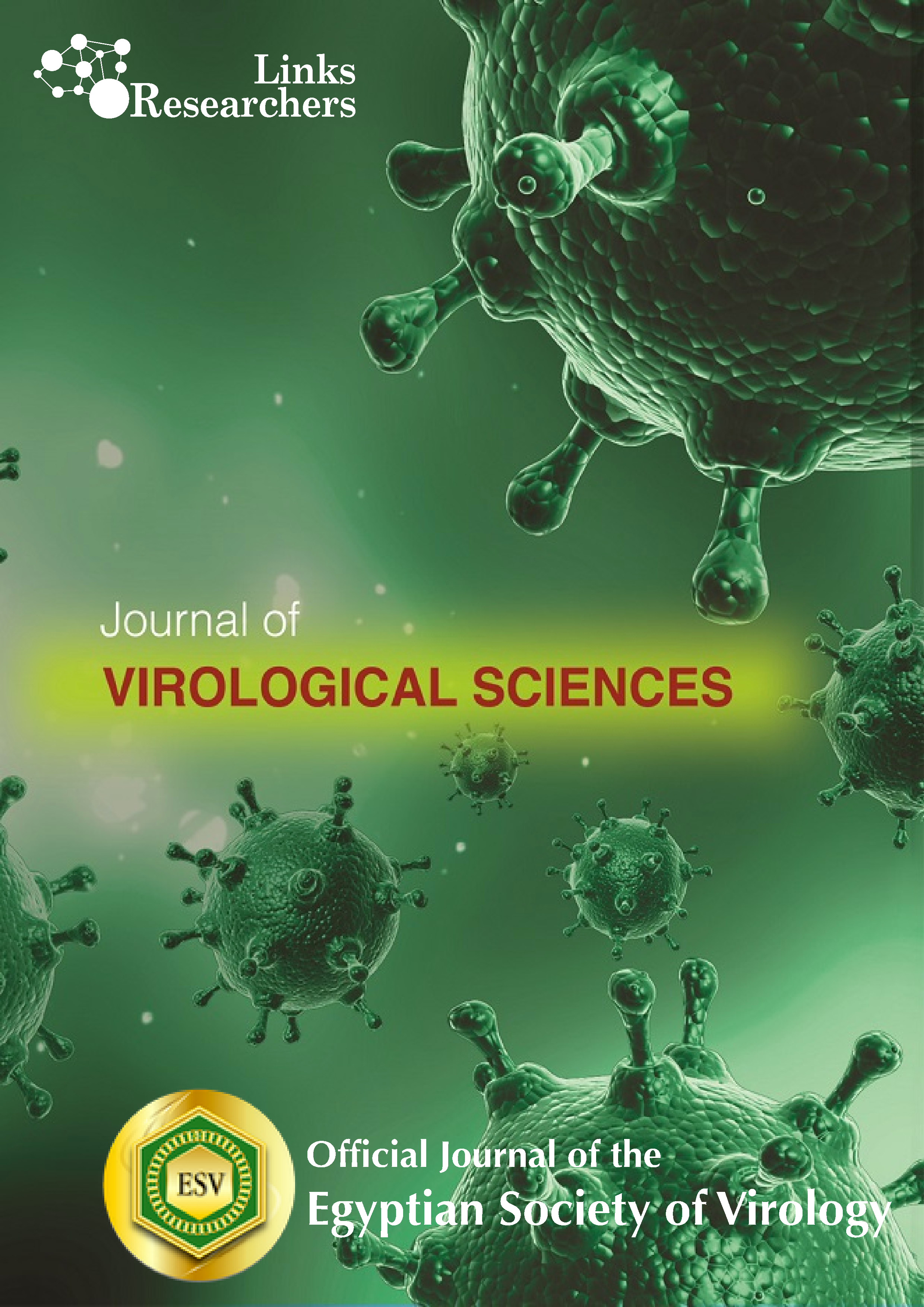Till now the incidence of equine arteritis virus in Egypt is still unknown and need
more investigations.This initiated the present study to design a protocol for isolation
trials and characterization of equine arteritis virus from field specimens. A total of
548 samples were collected from governmental and private studs of Arabian horses
and also foreign horse breeds, including 540 serum samples, among these, 4 EDTAblood
and 4 semen samples. Serologically, indirect ELISA was performed on 540
serum samples. 130 samples were clearly strong positive at a percentage of 24%.
Molecular detection of EAV genome was performed only on 8 selected semen and
EDTA-blood samples which were giving highly distinct positive reaction in the
indirect ELISA. All samples were found negative to the presence of EAV genome by
real time RT-PCR. Trials of isolation on different types of cell cultures were done on
the 4 described semen samples; RK-13, VERO-1008, BHK-21 AND MDBK cell lines
were used in these trials. Six blind serial passages were done using the described
samples; all samples were found negative for the presence of CPE characteristic to
EAV. All sixpassages of all samples on RK-13 cells were re-tested using rRT-PCR
to confirm absence of EAV, thus assuring the absence of EAV in Egypt or at least in
areas from which clinical specimens were collected..





